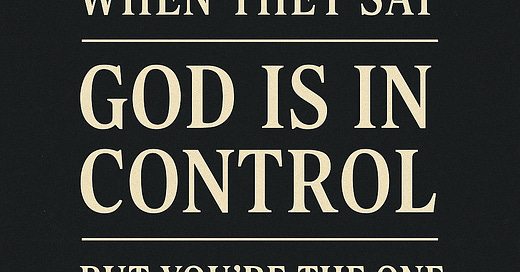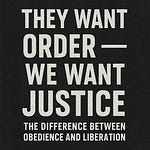Overview:
This episode challenges the passive, often weaponized phrase: “God is in control.” While it can bring comfort, it’s also been used to dismiss injustice, silence grief, and justify inaction. We explore how this statement can both soothe and suppress—and how reclaiming responsibility is part of reclaiming faith.
In This Episode:
The emotional comfort and the political danger of surrendering control
How “God is in control” can be used to excuse cruelty or avoid accountability
The tension between spiritual trust and civic responsibility
Why faith doesn’t mean silence in the face of injustice
What real trust might look like in systems designed for harm
Key Concepts Covered:
The theology of control vs. the theology of courage
False comfort vs. true compassion
The difference between faith in God and faith as silence
How passivity reinforces oppression
Featured Frameworks:
12 Utilities: Systems that overuse divine authority often strip people of dignity, choice, and agency
PERMAH: Flourishing requires participation, not just passive faith
Admiration Equation: Real trust is built when power is used for good—not hidden behind divine justification
Prospect Theory: People cling to control narratives to avoid facing painful truths or hard change
Memorable Quote:
“If God is in control, why are the powerful still so terrified of the powerless rising?”
Reflection Prompt:
When have you heard “God is in control” used to help—and when has it been used to shut people down? What kind of faith resists injustice instead of excusing it?












Share this post